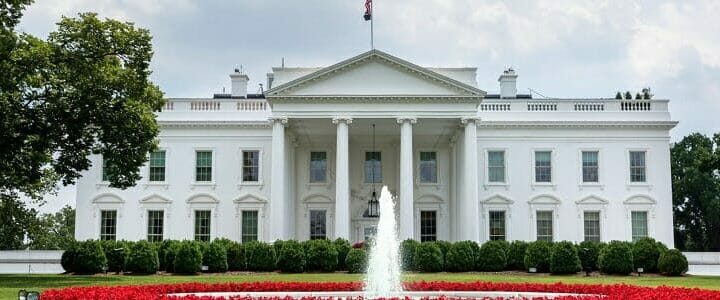It’s been a little more than a year since I last wrote about Jared Kushner’s security clearance. But last week, the New York Times reported that since then, the president ordered then-Chief of Staff John Kelly to grant Kushner a Top Secret clearance despite the misgivings of security professionals. This report contradicts the president’s assertion that he had no role in the process.
This is an unforced error on the president’s part. Instead of denying he had anything to do with it, he should have owned the decision. He ought to have taken the opportunity to remind the public—and the opposition in Congress—that as president, he is entitled to the advisers he wants, despite what the bureaucracy—or the opposition in Congress—thinks of them.
In response, Florida Democratic Congresswoman Debbie Wasserman-Schultz has stated she will file legislation to strip Kushner of his clearance. It is unclear how she intends to do that, but her actions last year offer a little bit of a clue.
Using the power of the purse to limit who gets cleared
Wasserman-Schultz offered two amendments to an appropriations bill last July that would have prevented using appropriated funds “to issue, renew, or maintain a security clearance for any individual in a position in the Executive Office of the President who is under a criminal investigation by a federal law enforcement agency for aiding a foreign government,” or “to issue, renew, or maintain a security clearance for any individual in a position in the Executive Office of the President who deliberately fails, as determined by the issuing department or agency, to disclose in the Standard Form 86 of such individual a meeting with a foreign national if such disclosure is required for such form.”
Wasserman-Schultz said at the time, “It should concern every American that Jared Kushner… is reportedly among the main targets of the FBI’s criminal investigation about the now evident collusion between Donald Trump’s campaign in the hostile Russian government during the presidential election.” There are two issues with this.
First, it was not evident last July, and is still not evident today that there was any “collusion” between the president’s campaign and the Russian government, regardless of your definition of collusion. If anything, the idea that the president’s campaign was in cahoots with Vladimir Putin to misinform and divide the American public seems more remote by the day.
The second issue is far more damaging in the long run to the legitimate exercise of executive authority. While Wasserman-Schultz claims her amendments were “intentionally narrowly drawn,” the one on criminal investigations would place any president at the mercy of the bureaucracy he oversees and directs.
Imagine if now-disgraced FBI agent Peter Strzok had this power in 2017. He and accomplice Lisa Page felt the need to “stop” the president. Is it so had to image that he’d have opened baseless criminal investigations against multiple potential White House employees in an effort to hobble the incoming administration? I have no problem imagining that scenario.
the potential Long-Term effects of limiting presidential discretion
The same would hold true for every president going forward. A primary criticism of the decision to declare a national emergency to redirect defense dollars to a border wall has been that the door is now open for future presidents to take similar action on a range of other issues. Those arguments ignore the fact that the emergency powers granted to the president by statute do not confer the unilateral power to address gun control or climate change (two popular examples of presidential action). But they are valid in that all decisions have long-reaching effects that decision makers need to consider when developing potential courses of action.
Congress certainly has the power to codify how the executive branch carries out the process of investigation and adjudication for determining suitability for access to classified information. Even the landmark 1988 Supreme Court decision in Navy v. Egan, from which much of our security clearance jurisprudence derives, admitted that “unless Congress specifically has provided otherwise, courts traditionally have been reluctant to intrude upon the authority of the Executive in military and national security affairs.”
Congress specifically mentions security clearances in 64 separate sections of the U.S. Code. But while it has specified procedural requirements—such as the one that requires the president to designate a central organization for conducting all investigations—it has wisely avoided adopting the adjudicative guidelines into law. Since the formalization of the classification and clearance system in the Eisenhower administration, Congress has wisely kept the power to determine what information should be classified, and who should have access to it, in the hands of the president and his appointed agency heads.
Even the law that requires potential White House Office employees to submit an SF-86 within 30 days of starting their jobs, and requires the White House to complete their background investigations within six months, provides a giant loophole for “any individual specifically exempted… by the President or his designee.”
Congress has taken a “hands-off” approach to the investigation and adjudication process for at least 66 years. It ought not allow its dislike of Jared Kushner to override that good judgement.



